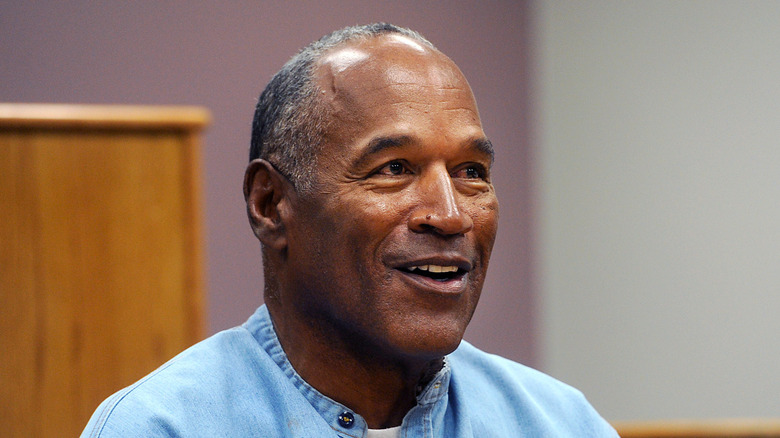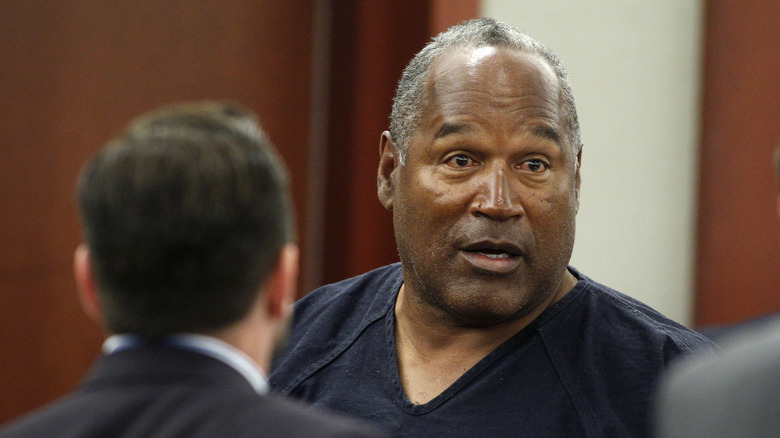O.J. Simpson Dead At 76
Former NFL star O.J. Simpson has died of cancer at 76, TMZ reported. According to a post from his family on X (formerly Twitter), he died on Wednesday, April 10, 2024, from cancer. "[O]ur father, Orenthal James Simpson, succumbed to his battle with cancer," the post read. "He was surrounded by his children and grandchildren. During this time of transition, his family asks that you please respect their wishes for privacy and grace."
The convicted felon was infamously charged with the double murder of his ex-wife, Nicole Brown Simpson, and her friend, Ron Goldman, in a 1995 trial that shook the nation. He was later acquitted, though he never left the limelight, penning a controversial book, "If I Did It: Confessions of the Killer Book," that proposes a hypothetical confession in which he describes killing the pair. O.J. Simpson later served almost nine years in a Nevada prison for armed robbery before he was released in 2017. He leaves behind four children — two from his marriage to Nicole Brown Simpson, and two from his first marriage to Marguerite Whitley.
Cancer diagnosis
According to TMZ, O.J. Simpson was living with prostate cancer for years, though when he was diagnosed is unclear. The outlet said his health had recently declined, and he entered hospice care sometime in the last few months before his death. Back in February 2024, WPLG pointed to sources claiming Simpson was diagnosed with prostate cancer and undergoing chemotherapy in Las Vegas, as well as rumors saying he was in hospice. The former NFL star denied the hospice claims. "Hospice? Hospice? You talking 'bout hospice?" he said in a video posted to X. "No, I'm not in any hospice. I don't know who put that out there."
While the average amount of time people live in hospice care varies, a Journal of Palliative Medicine study found that 90% die within six months. According to the American Cancer Society, the five-year relative survival rate (the percentage of people who will be alive five years after diagnosis) for prostate cancer that is localized or regional is over 99%. However, this number drops to 34% for those with distant prostate cancer, which means the disease has spread to other parts of the body.

